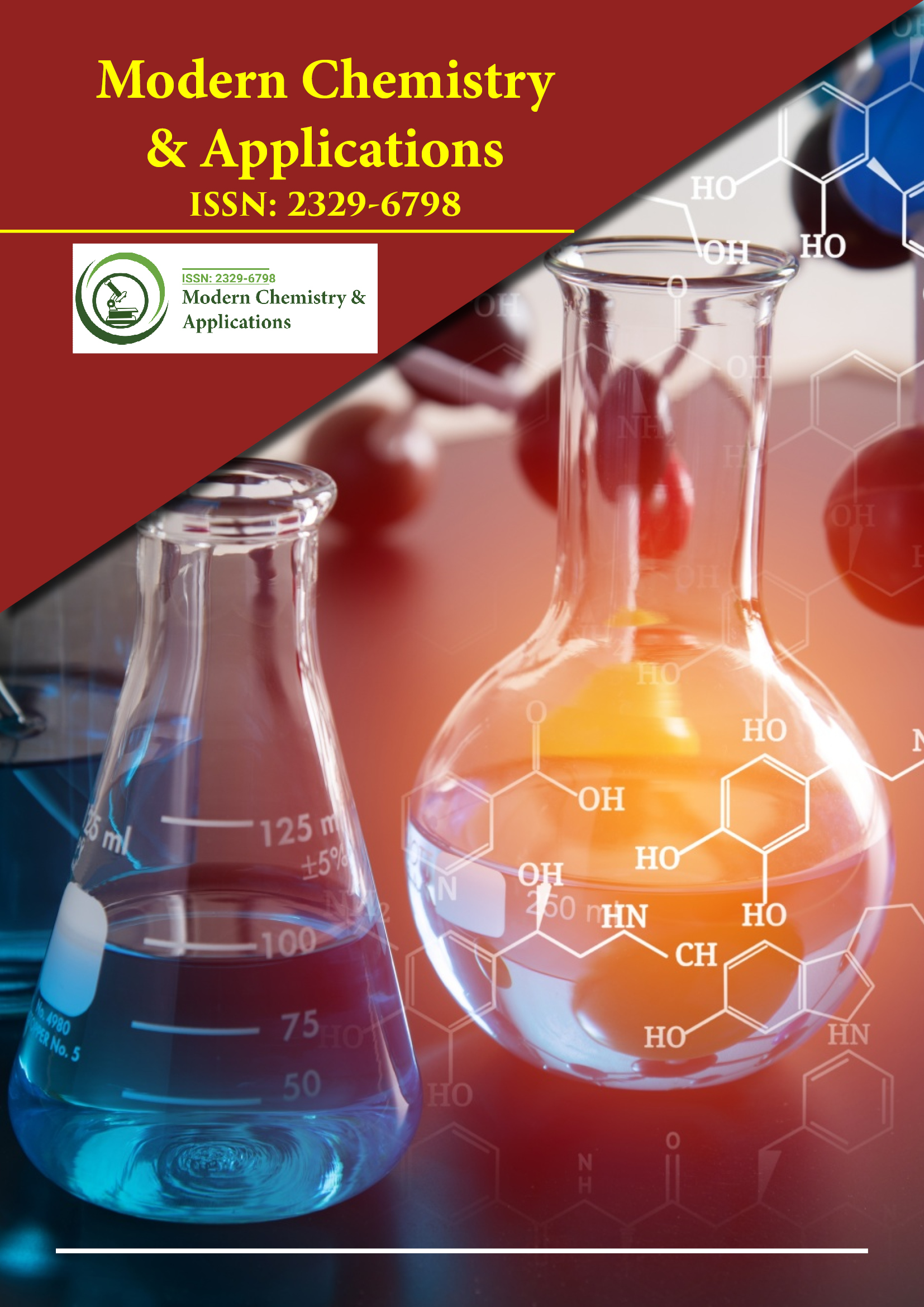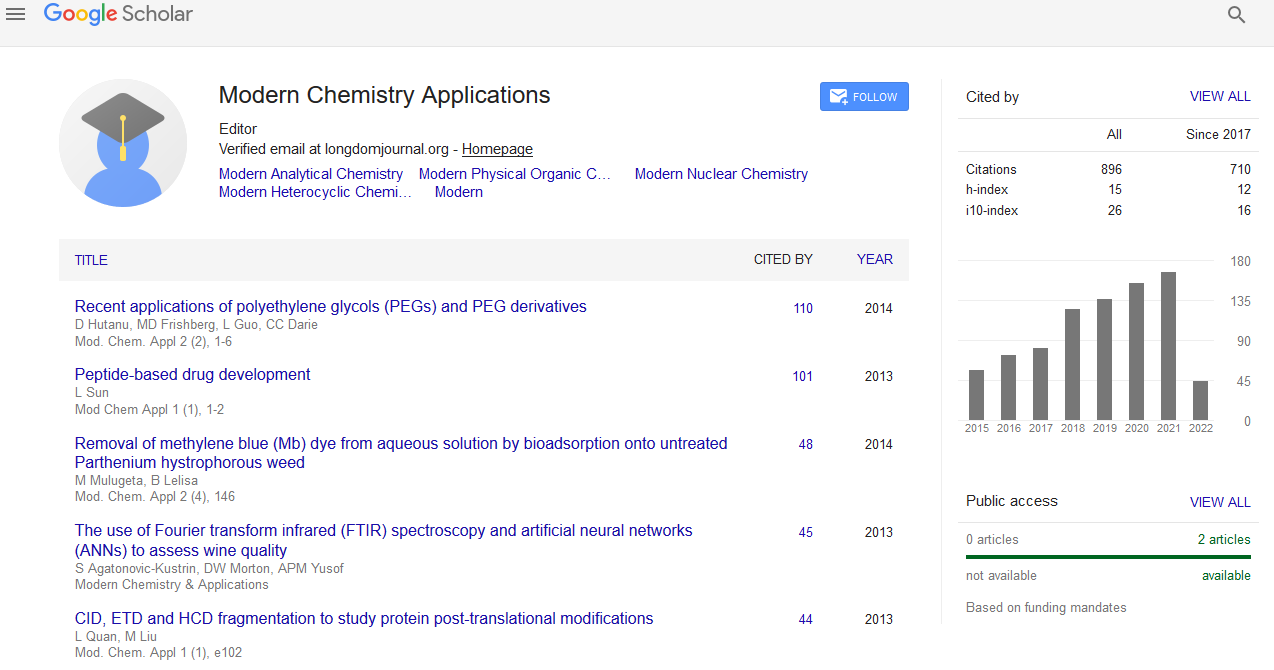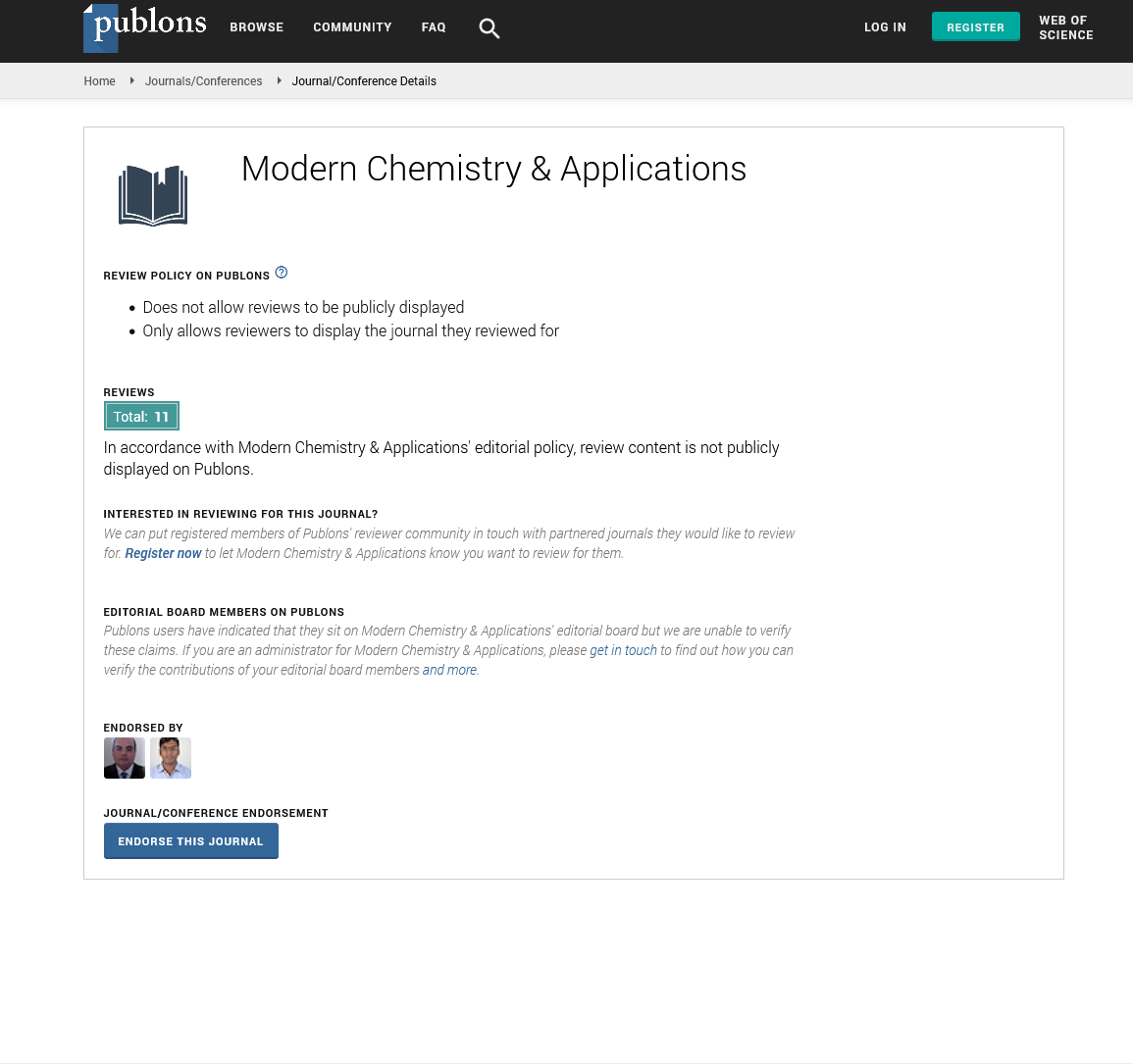Indexed In
- Open J Gate
- JournalTOCs
- RefSeek
- Hamdard University
- EBSCO A-Z
- OCLC- WorldCat
- Scholarsteer
- Publons
- Geneva Foundation for Medical Education and Research
- Google Scholar
Useful Links
Share This Page
Journal Flyer

Open Access Journals
- Agri and Aquaculture
- Biochemistry
- Bioinformatics & Systems Biology
- Business & Management
- Chemistry
- Clinical Sciences
- Engineering
- Food & Nutrition
- General Science
- Genetics & Molecular Biology
- Immunology & Microbiology
- Medical Sciences
- Neuroscience & Psychology
- Nursing & Health Care
- Pharmaceutical Sciences
Commentary - (2022) Volume 10, Issue 3
Analysis and Importance of Nuclear Chemistry Models
Rajappan William*Received: 02-Mar-2022, Manuscript No. MCA-22-16309; Editor assigned: 07-Mar-2022, Pre QC No. MCA-22-16309 (PQ); Reviewed: 21-Mar-2022, QC No. MCA-22-16309; Revised: 28-Mar-2022, Manuscript No. MCA-22-16309 (R); Published: 07-Apr-2022, DOI: 10.35248/2329-6798.22.10.347
Description
Nuclear Chemistry (NC) is the sub-field of chemistry dealing with nuclear processes, and transformations in the nuclei of atoms, including nuclear transmutation and nuclear properties. Nuclear chemistry is the chemistry of radioactive elements which include the actinides and radon together with the chemistry associated with equipment including nuclear reactors which are designed to perform nuclear processes. This includes the corrosion of surfaces and the behavior under conditions of both normal and abnormal operation during an accident. An important area is the behavior of materials after being placed into a nuclear waste disposal site.
Nuclear Chemistry (NC) consists of the study of the chemical effects resulting from the absorption of radiation within living animals, and other materials. The radiation chemistry controls radiation biology as radiation has an effect on living things at the molecular scale. To explain nuclear chemistry another way, the radiation alters the biochemical within an organism, the alteration of the bio-molecules then changes the chemistry which occurs within the organism, this change in chemistry then can lead to a biological outcome. As a result, nuclear chemistry greatly assists the understanding of medical treatments including cancer radiotherapy and has enabled these treatments to improve.
It is the study of how atomic nuclei can change into new nuclei. The atom itself is changing in nuclear reactions. As with conventional chemical reactions, a nuclear reaction is accompanied through energy changes. It can be found in different areas of research, which includes nuclear imaging in medicine or nuclear engineering in power generation. They frequently work to improve the efficiency and safety of nuclear energy sources and the techniques of storing and disposing of radioactive materials. Some nuclear chemists pursue careers in research and education as laboratory technicians, college professors.
Nuclear Chemistry (NC) consists of the study of the production and use of radioactive sources for a range of techniques. These consist of radiotherapy in medical applications by using radioactive tracers within industry, technology and the environment, and the use of radiation to modify materials including polymers. It is also consists of the study and use of nuclear techniques in non-radioactive areas of human activity. For instance, Nuclear Magnetic Resonance (NMR) spectroscopy is generally used in synthetic organic chemistry and physical chemistry for structural analysis in macro-molecular chemistry. Chemical reaction is a type of reaction where molecules interact of an element reorganizes them to form a whole new product. Nuclear reaction is a type of reaction where the structure of the nucleus of an atom changes completely while releasing energy. There are four main nuclear chemistry reaction that will be covered in this unit are fission, nuclear decay, Transmutation.
For example, Nuclear Chemistry (NC) techniques have helped to make enough energy to keep society running, and have also allowed the long range space probes to continue operating for over thirty years. Nuclear Chemistry (NC) also helps to diagnose and treatment cancer, making the prognosis for cancer patients better than ever before. The three most common types of radiation are alpha, beta particles, and gamma rays. It has many applications in agriculture, medicine, and industry. Nuclear chemistry greatly improves the day to day quality of our lives.
Citation: William R (2022) Analysis and Importance of Nuclear Chemistry Models. Modern Chem Appl. 10:347.
Copyright: © 2022 William R. This is an open access article distributed under the terms of the Creative Commons Attribution License, which permits unrestricted use, distribution, and reproduction in any medium, provided the original author and source are credited.


